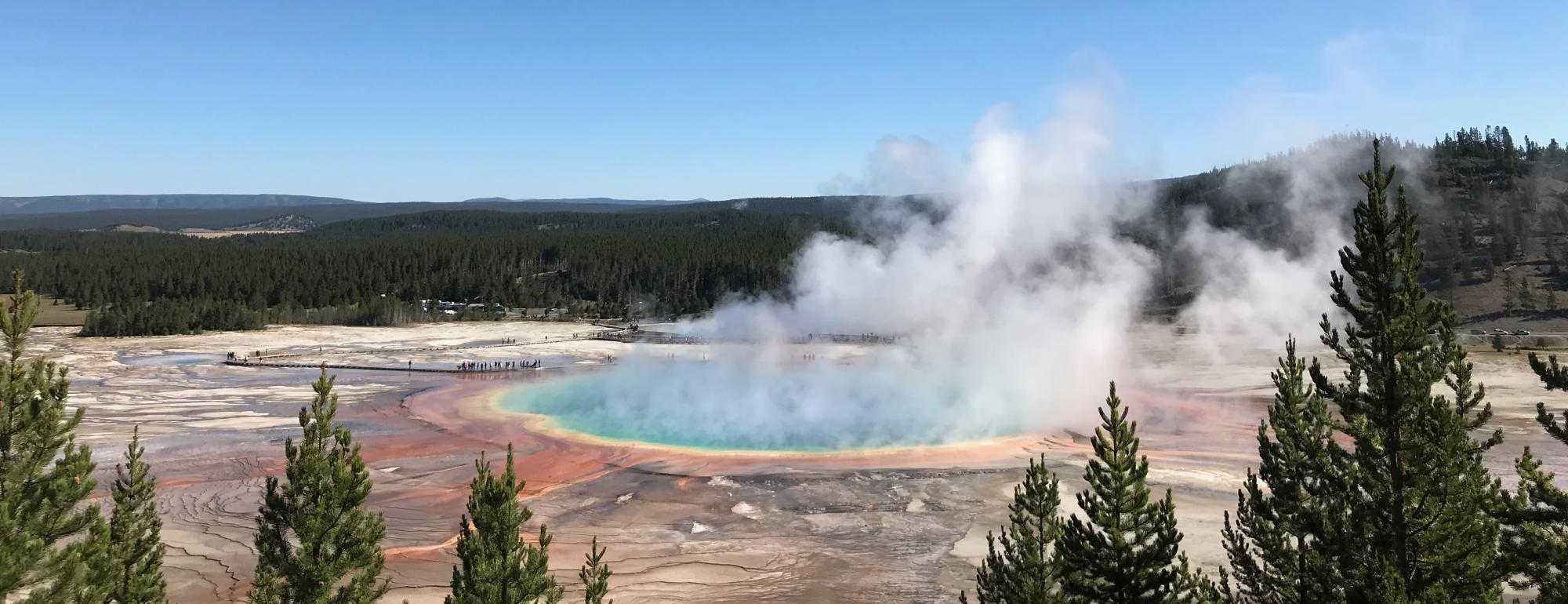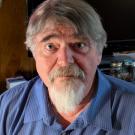
James Beard, Ph.D. ’85
Emeritus Curator of Geology, Virginia Museum of Natural History
Adjunct Faculty, Virginia Tech
Jim Beard is a research geologist with 40 years of experience in the petrology of rocks ranging from plutons to serpentinites to black shales using experimental and analytical techniques. At VMNH he built and curated the rock and mineral collections. He was responsible for the scientific content of exhibits and education programs, including several major exhibits developed as the museum moved into new quarters in 2007. He has sailed twice as a shipboard scientist on the IODP vessel Joides Resolution and served for two years as a rotating program officer in Ocean Sciences at NSF. He is the founding president of the mineralogy-petrology-geochemistry-volcanology division of GSA. Most recently, he has worked in collaboration with Virginia Tech and USGS scientists (notably UCD grad Susan Hall) on the genesis and evolution of the Coles Hill uranium deposit, the largest such deposit in the U.S.
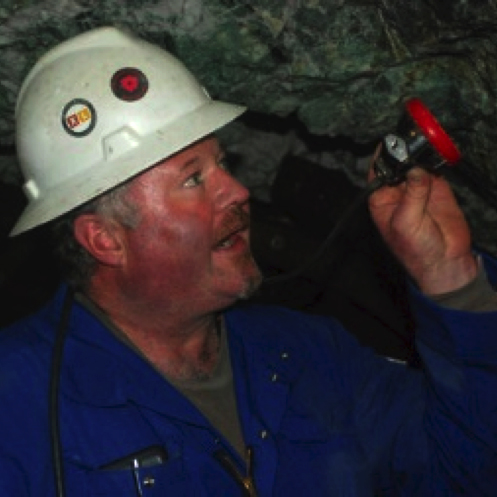 Robert Campbell, B.S. ’89
Robert Campbell, B.S. ’89
GeoSolve, Inc. – President & Principal Engineering Geologist
Robert Campbell, M.S., PG, CEG has been working as an engineering and environmental geologist for over 30 years. His professional work has focused on evaluating environmental impacts and associated risks, implementing alternative remedial technologies to mitigate environmental concerns, including Brownfield redevelopment, geochemical evaluation of soil and groundwater; geologic and seismic hazard assessments, fault and landslide investigations and hydrogeological investigations related to seepage evaluations and groundwater production well design and performance. Campbell currently owns and operates GeoSolve, Incorporated, a Sierra Nevada foothills and bay-area based consulting firm providing solution-oriented services for environmental, geological, and hydrogeological projects.
Campbell is a proud graduate of UC Davis. He accredits his success as a geological consultant to his former mentors and UC Davis faculty members, Dr. Eldridge Moores and Dr. Robert Matthews. In their honor, Mr. Campbell is a dedicated volunteer with the American Institute of Professional Geologists, where he is committed to the intentional mentoring of students in developing specific technical skills, business acumen and savvy not taught in college today for geoscience majors.
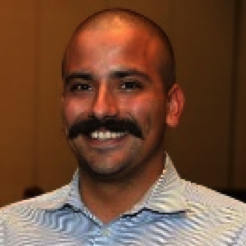 Ivan Carabajal, B.S. ’13
Ivan Carabajal, B.S. ’13
Current Ph.D. Student at University of Cincinnati
Ivan Carabajal is a Ph.D. candidate in the School of Education at the University of Cincinnati and is being supported by the National Science Foundation’s Graduate Research Fellowship Program. His research focuses on enhancing access and inclusion in the geosciences by understanding and developing teaching practices that support the needs of students with physical and sensory disabilities. A former participant in both the Geological Society of America’s Mosaics in Science and Geoscientist-in-the-parks programs, Ivan draws on his past experiences in geoscience outreach and teaching to develop new ways of instruction that benefit all learners. Currently, Carabajal serves on the Executive Committee of the International Association for Geoscience Diversity (theIAGD.org), a non-profit organization that advocates for improved access to the geoscience disciplines for students and geoscientists with disabilities.
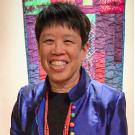
Marjorie Chan, B.S. ’77
Distinguished Professor of Geology at the University of Utah
Marjorie Chain has been Distinguished Professor of Geology at the University of Utah, turned Emeritus in July 2024. She has had a long career of sedimentary research in the Western U.S. studying the PreCambrian to the Pleistocene, but often favoring the Jurassic Navajo Sandstone system. She is very active in service, including past service of chair of the U.S. National Committee for Geological Sciences and many roles in the Geological Society of America (GSA) plus numerous committees and boards. She has been recipient of the GSA Distinguished Service Award, GSA Sloss Award for lifetime achievements in Sedimentary Geology, and GSA Distinguished International Lectureship.
 Chris Higgins, M.S. ’77
Chris Higgins, M.S. ’77
California Geological Survey, Department of Conservation – Senior Geologist
Chris Higgins graduated with a B.S. in Geology from California State University, Hayward, in 1972 and an M.S. in Geology from the University of California, Davis, in 1977. In between graduations, he also served as a meteorologist with the U.S. Naval Air Reserve. Since leaving UC Davis, Higgins has worked as a geologist with the California Geological Survey in Sacramento. His studies with the CGS have included research in mineral hazards, mineral resources and the mining industry, geothermal resources, remote-sensing applications, geographic information systems, offshore sand resources, geologic mapping, and seismology. Over the last fifteen years as a Senior Geologist (Specialist), he has developed maps and reports that address potential for mineral hazards throughout California. Higgins has also participated in many activities to help educate students and the public about the geology of the state.
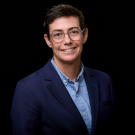
Naomi Marks, M.S. '07, Ph.D. '10
Lawrence Livermore National Laboratory
Associate Program Leader
Naomi Marks is Deputy Director of the Glenn T. Seaborg Institute and a researcher in nuclear forensics at Lawrence Livermore National Laboratory. She has expertise in thermal ionization mass spectrometry and electron probe microanalysis, including applications to nuclear forensics; geochronology and geochemistry of planetary samples, formation and evolution of U ore deposits, isotopic and chemical evolution of early solar system materials; and nuclear forensics. She is the scientific co-chair of the International Technical Working Group on Nuclear Forensics, the preeminent scientific body for Nuclear Forensics. Marks is currently supporting an Initiative on Advanced and Small Modular Reactors helping to develop LLNL’s research and development portfolio focused on non-proliferation, forensics, safeguards, and materials attractiveness. Naomi earned a B.S. in Earth Science from UCSC and an MS and PhD from UC Davis working on geothermal systems with Robert Zierenberg and Peter Schiffman.
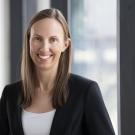
Cynthia McClain, B.S. ’08
University of Alberta, Alberta Biodiversity Monitoring Institute
Director, Geospatial Centre
Dr. Cynthia Mclain is a hydrogeologist and director with over 15 years of experience in government, energy industry, environmental consulting, not-for-profits and academia. While pursuing her B.S. in Geology at the University of California Davis she tailored her studies around water quality obtaining a minor in Hydrology and an emphasis in geochemistry, working as a Research Assistant in the Department of Civil & Environmental Engineering on the fate and transport of Hg in the Idrija River, Slovenia, and completing her Senior Honors Thesis in the Center for Watershed Sciences on Mt. Shasta springs. After graduating from UCD, Cynthia completed a M.S. in Environmental Engineering and Ph.D in Geological and Environmental Sciences from Stanford University.
She currently manages a team of ~25 scientists and technologists at a not-for-profit, the Alberta Biodiversity Monitoring Institute, who work on a range of topics from wetland and algal bloom mapping, to using lidar to quantify the status of vegetation regeneration on seismic lines in woodland caribou habitat. She has also held an Adjunct Assistant Professor appointment at the University of Calgary in the Department of Earth, Energy, and Environment since 2019 where she conducts collaborative research on provincial-scale groundwater quality and environmental microbiology. In addition, she works as a Groundwater Data Advisor for the charity DataStream, providing open-access water quality data across Canada. Cynthia also serves as the Alberta Director of the International Association of Hydrogeologists- Canadian National Chapter, and in 2023 received the organization's Early Career Hydrogeologist Award. She is devoted to increasing diversity in science through mentorship, leadership and education with a focus on the retention of equity seeking groups in science.
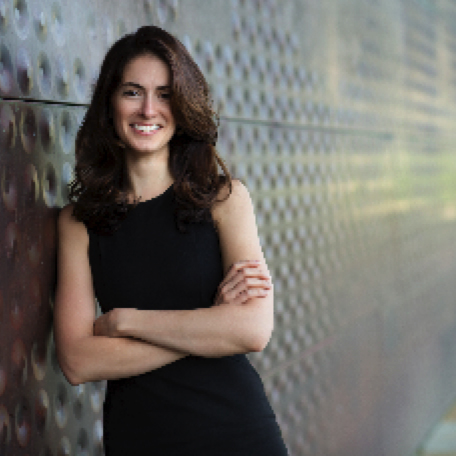 Sierra Nelmes, B.S. ’08
Sierra Nelmes, B.S. ’08
Coforma, Principal Design Researcher
UX Research and Designer
Sierra Nelmes is a Principal Design Researcher with a B.S. in Geology from UC Davis and a Master’s in Interaction Design from the Copenhagen Institute of Interaction Design. She began her career as an environmental scientist before pivoting into human-centered design, where she now leads AI-focused research and product strategy in both public and private sectors. Sierra is passionate about interdisciplinary problem-solving and expanding the pathways available to Earth and Planetary Sciences graduates beyond traditional roles.
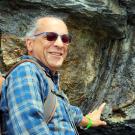
Peter Roopnarine Ph.D. ’94
Curator of Geology at the California Academy of Sciences
Peter Roopnarine is the Curator of Geology at the California Academy of Sciences. He holds degrees in Biology (B.Sc.), Oceanography (M.S.) and Geology (Ph.D.). His research is transdisciplinary, with a focus on understanding the evolution of ecological systems, emphasizing paleontology, deep time, and perspectives on complexity dynamics. Most of his research these days centers around global change, and how we can further develop our understanding of Earth's past ecosystems to better forecast our future.
Peter was born in the United Kingdom, and grew up in the beautiful countries of Jamaica, and Trinidad & Tobago. He earned his Ph.D. in Geology at UC Davis in 1994, and continues to collaborate with colleagues there.
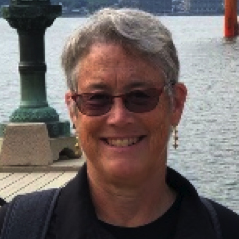 Lori L. Summa Ph.D. ’86
Lori L. Summa Ph.D. ’86
Rice University - Adjunct Faculty
University of Texas, Jackson School of Geosciences – Research Collaborator
Lori L. Summa is a geologist with over 30 years of experience in geoscience, basin analysis research, and petroleum-systems evaluation. Summa retired as a senior technical consultant with ExxonMobil Upstream Research Company in 2016. In this position, she advised corporate management on strategic geoscience issues to ensure appropriate research was performed in support of business objectives. She is currently an adjunct faculty member in the Department of Geosciences at Rice University and a research collaborator at the University of Texas, Jackson School of Geosciences. Her background is in basin analysis and numerical modeling, but she also has broad experience with exploration in offshore marine environments. Dr. Summa earned a B.S. in geology from the University of Rochester and a Ph.D. in geology from the University of California, Davis, in 1985.

Bach Tien B.S. ’08
Ninyo & Moore - Senior Project Engineering Geologist
Bach Tien, PG, CEG has been working as a consulting geologist in the geotechnical engineering industry since his time at UC Davis. He performs geologic evaluations, provides geotechnical design services, and conducts forensic evaluations for a variety of projects throughout California. Bach's areas of experience include engineering geology, expert witness services, evaluation of vibration sourced damage, construction defect litigation, evaluation of seismic sourced damage, slope stability, mechanically stabilized earth, slak leak investigations, soil compaction and settlement, expansive soils, surface and subsurface drainage, distress to structures, and shallow groundwater evaluation.
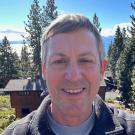
Ken Werner, B.S. ’81
Chevron Oil and Gas Company – Retired
Ken Werner is a geologist with 35 years of oil and gas experience who worked for Unocal and then Chevron in California, Louisiana, Texas, Indonesia, and Thailand. He worked as an exploration geologist, development geologist, team leader, manager, and hub leader. In his most recent position, he coordinated efforts to address technology challenges between 7+ Deepwater and Conventional Business Units and worked to align their needs across all functions with research and development work done in the Chevron Technology Center.
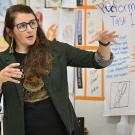
Maya Wildgoose, B.S. ’09
Maya Wildgoose earned her B.S in Geology from UC Berkeley in 2009, and was inspired by her stepfather, UC Santa Cruz geology titan J. Casey Moore, to pursue an M.S. from the UC Davis Earth & Planetary Sciences department in 2013 with Sarah Roeske, working on metamorphosed rocks from the Ruby Terrane in central Alaska. Maya focused on Lu-Hf and Ar-Ar geochronology in order to determine a P-T-t path for the blueschists in Mesozoic subduction systems. Maya also worked with Peter Schiffman, Jim McClain, Bill Glassley, and Robert Zierenberg on geothermal systems in eastern California and Valles Caldera, NM. Since graduating, she has been teaching high school earth science in Vacaville, CA, where she gets to introduce new generations to the magic of the geosciences. Over the past decade, Maya has worked in conjunction with UC Davis and the California Geological Survey to promote geoscience education that addresses critical thinking and application to careers in the field.

